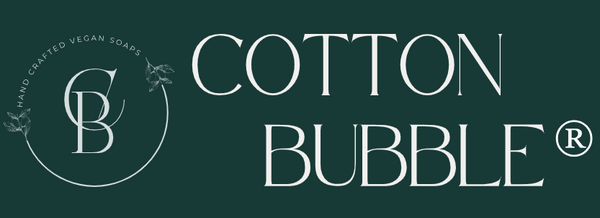Hypoallergenic Soap: What “Allergen-Free” Really Means in Europe, America, and Asia

If you’ve ever picked up a bar of soap labeled “hypoallergenic” or “allergen-free,” you might wonder what those words really mean. Is it just clever marketing—or backed by law? With sensitive skin on the rise and the clean beauty movement gaining momentum, understanding cosmetic allergen regulations is more important than ever. Let’s dive into how fragrance allergens are regulated in the EU, USA, and Asia, and what you should look for when choosing a soap that’s safe for your skin.
Let me start with TL;DR:
In the US → There's no way to define “hypoallergenic” because if there's even one person on this planet reacts differently, no company can guarantee the claim.
In the EU → We are going to measure exactly:
-
Either Allergens are present but below the legal threshold for labeling (in the EU it’s 0.01% for rinse‑off products, 0.001% for leave‑on), OR
- No fragrance was added
The European Union: The Gold Standard for Allergen Transparency
The EU has the strictest rules for fragrance allergens. Under Regulation (EU) 2023/1545, more than 80 fragrance ingredients—including essential oils, extracts, and synthetic molecules—must be listed on product labels if they exceed specific thresholds:
-
0.001% in leave-on cosmetics (like lotions)
-
0.01% in rinse-off products (like soaps and shampoos)
This means even trace amounts of allergens such as Linalool, Citral, Eugenol, Pinene, Menthol, and popular oils like Lavender or Rose must be declared so consumers with sensitivities can make informed choices.
This level of transparency empowers people with eczema, dermatitis, or fragrance allergies to avoid triggers and still enjoy personal care products.
The United States: “Hypoallergenic” as a Marketing Term, NOT a federal standard
In the US, things look very different. The FDA does not legally define or regulate “hypoallergenic.”
Why?
Because allergic reactions are individual. If even one person (out of billions) can react to an ingredient that most people tolerate, then no company can guarantee a product is truly hypoallergenic.
Companies are free to market products as hypoallergenic without disclosing fragrance allergens. A soap can contain multiple essential oils and still be labeled “allergen-free.”
The only requirement: ingredients considered unsafe cannot remain on the market. But the catch is that fragrance blends can be listed simply as “fragrance” or “parfum”, keeping consumers in the dark.
Read more:
There is no such thing as a "nonallergenic" cosmetic- FDA
FDA Authority Over Cosmetics: How Cosmetics Are Not FDA-Approved, but Are FDA-Regulated
Asia: A Growing Focus on Safety, But Minimal Allergen Rules
In Asia, fragrance allergen labeling varies:
-
China requires ingredient registration and safety data, but labeling rules for allergens aren’t nearly as strict as the EU.
-
Japan and South Korea mandate full ingredient lists, but fragrance allergens don’t need to be individually highlighted unless a specific risk exists.
We’re noticing a trend: clean beauty brands in Asia are voluntarily adopting EU-style transparency to appeal to ingredient-conscious consumers.
What This Means for “Hypoallergenic Soap”
Here’s the truth:
-
In the EU, “hypoallergenic soap” has a measurable meaning—you can check the label and see allergens disclosed above the thresholds.
-
In the US and most of Asia, “hypoallergenic” is largely a marketing phrase with no strict allergen disclosure requirements.
-
If you want a truly allergen-friendly soap, look for brands that either:
-
Follow EU allergen labeling rules globally, or
-
Are completely fragrance-free and essential oil–free.
-
Pro Tips for Choosing the Right Soap for Sensitive Skin
-
Check for complete labeling: Does the brand follow EU transparency even outside Europe?
-
Go fragrance-free: If your skin is very reactive, skip essential oils and perfumes altogether.
-
Patch test: Even “natural” ingredients like lavender oil or citrus extracts can be irritating.
-
Support clean beauty brands: Look for companies that voluntarily disclose allergens worldwide.
Conclusion
The term “hypoallergenic soap” means very different things depending on where you shop. Europe leads in protecting sensitive skin by enforcing allergen disclosure, while the USA and Asia lag behind. For clean beauty enthusiasts, the best choice is clear: pick soaps that go beyond the minimum requirements; because true transparency is the new standard of care.
